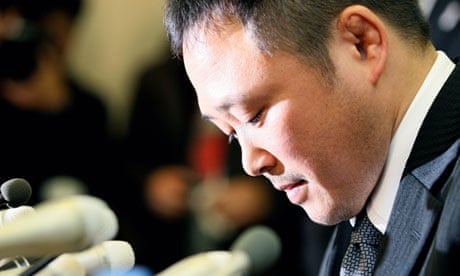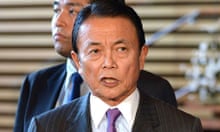The coach of the Japanese women's judo team has resigned amid accusations that he physically abused athletes in the buildup to the London Olympics.
Ryuji Sonoda is accused of harassing and assaulting female judoka while they were preparing for the summer games. The revelations have rocked the Japanese martial art, coming the same week as a former Olympic two-time gold medallist, Masato Uchishiba, was sentenced to five years in prison for raping a female member of a university judo club in 2011. Uchishiba, 34, won gold medals in the 66kg in Athens and Beijing.
The country's judo federation confirmed that Sonoda, a former world champion in the 60kg category, had used violence against the women.
The abuse prompted 15 athletes to send a letter to the Japanese Olympic Committee at the end of last year complaining about Sonoda's conduct. They said they had been slapped and shoved by him and other coaches, beaten with thick bamboo swords and forced to compete while injured.
On Thursday, Sonoda admitted that the allegations were "more or less true", adding: "I deeply regret that I have caused trouble with my behaviour, words and actions. It will be difficult for me to continue coaching the team."
The federation reprimanded him and the other coaches, but the sports minister, Hakubun Shimomura, ordered the Japan Olympic Committee (JOC) to launch an inquiry into the accusations. The police said they too would investigate.
Japan, which invented the sport, failed to win a single gold medal in men's judo for the first time in London; its only judo gold was won by Kaori Matsumoto in the women's 57kg division. The country had expected to win at least half of the 14 judo events.
The IJF, world judo's governing body, said abuse of athletes had no place in the sport.
"In direct connection with the complaint of a group of athletes from the national Japanese women's team, reporting the acts from their coach, the IJF strongly emphasises its total disapproval of such behaviours," it said in a statement.
"The IJF is particularly focused on the development and promotion of the moral code of judo. Judo is a method to develop the physical and mental capacities, whose primary concern is to maintain the [physical and mental] health and integrity of the participants. Any action that goes against these principles are banned. The IJF will therefore take all necessary measures."
The use of violence against Japanese athletes has been in the spotlight since the death of a teenage sumo apprentice in 2007. The 17-year-old collapsed after being beaten by three fellow wrestlers, one armed with a baseball bat. Their coach was sentenced to six years in prison for ordering the assault.
The death sparked demands for stables to address bullying in sumo, whose practitioners live together and undergo a strict training regime designed to toughen them up for competition in the ring.
The problem was highlighted again last December with the suicide of a high school student in Osaka who had been repeatedly beaten by his basketball coach.
Commenting on Sonoda's conduct, the JOC's president, Tsunekazu Takeda, said everything would be done "so that something like this never happens again in Japanese sport".
But the body's executive director said he believed Sonoda's abuse was part of a wider problem in Japanese judo. "This is just the tip of the iceberg," Noriyuki Ichihara told the Kyodo news agency. "I think this sort of thing is happening and will keep popping up."
Japan is keen to avoid negative publicity as Tokyo steps up its campaign to host the 2020 Olympics. Madrid and Istanbul are also in the running to be awarded the Games when the International Olympic Committee announces the host city in September.


